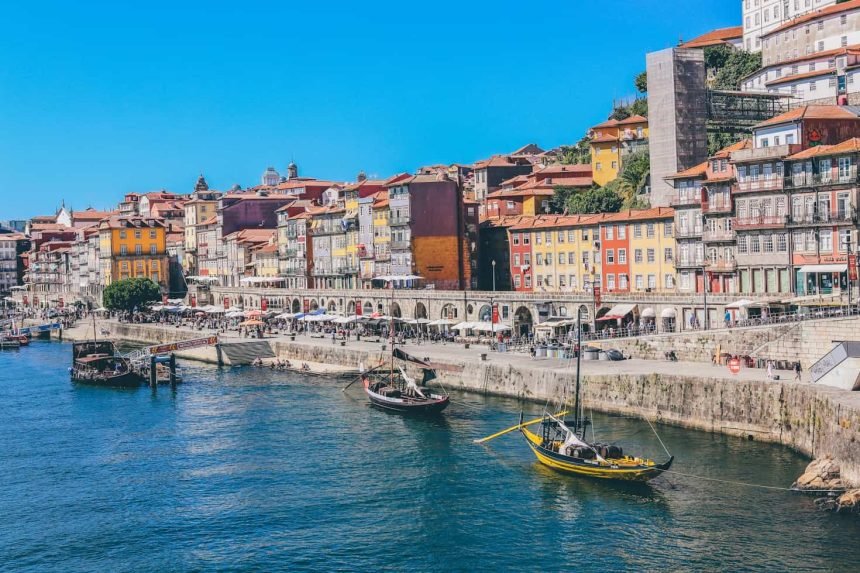When it comes to buying a property in Portugal, you need to consider the profitability, risks, and possible pitfalls to avoid. You should also know that your process of buying a property in Portugal might also be influenced by your intent for the home. Would you buy a home to live in Portugal, vacation, retire, or push towards rental income?
All these count towards your purchase. Still, buying property in Portugal can be a sound investment for many. The recent real estate gains present an attractive prospect. Now let’s talk about all the intricacies you need to be aware of before making your purchase.
Overview of homeownership in Portugal
Surprisingly, Portugal has an incredibly high number of homeowners at over 75 percent of the population. This is about 10 percent more than the number of homeowners in the UK and the US. About a good number of foreigners also own homes in the country. Many such people, digital nomads, retirees, and expat professionals choose to invest in a second home in Portugal’s real estate market. That said, let’s answer some of your mind-boggling questions about buying a property in Portugal.
Can I move to Portugal if I buy a house?
Before now, you could purchase real estate in Portugal as a part of your Golden visa process to indirectly secure permanent residence in Portugal. However, recently, that arm of the Golden visa program has been closed. Now you can still purchase a home in Portugal but it may not count towards your relocation to Portugal.
Is it easy to buy property in Portugal?
Purchasing property in Portugal as a foreigner is straightforward. Portugal has limited restrictions on foreigners seeking to buy a house in the country. You won’t have to meet any extra criteria or deal with any extra paperwork when compared to citizens.
In reality, you’ll need your Numero de Identificacao fiscal (NIF) or Numero de contribuinte (also known as the VAT identification number). To get this number, you’ll need to open a Portuguese bank account or go through a tax office in the country.
That said, there are many advantages to buying a house in Portugal. First, it’s a solid investment with great rental potential from tourists, vacationers, and immigrants. Portugal also has a low cost of living making many real estate properties more decently priced. Portugal is also ranked among the Top 20 safest countries in the world. (Read: All about Portugal for Investors).
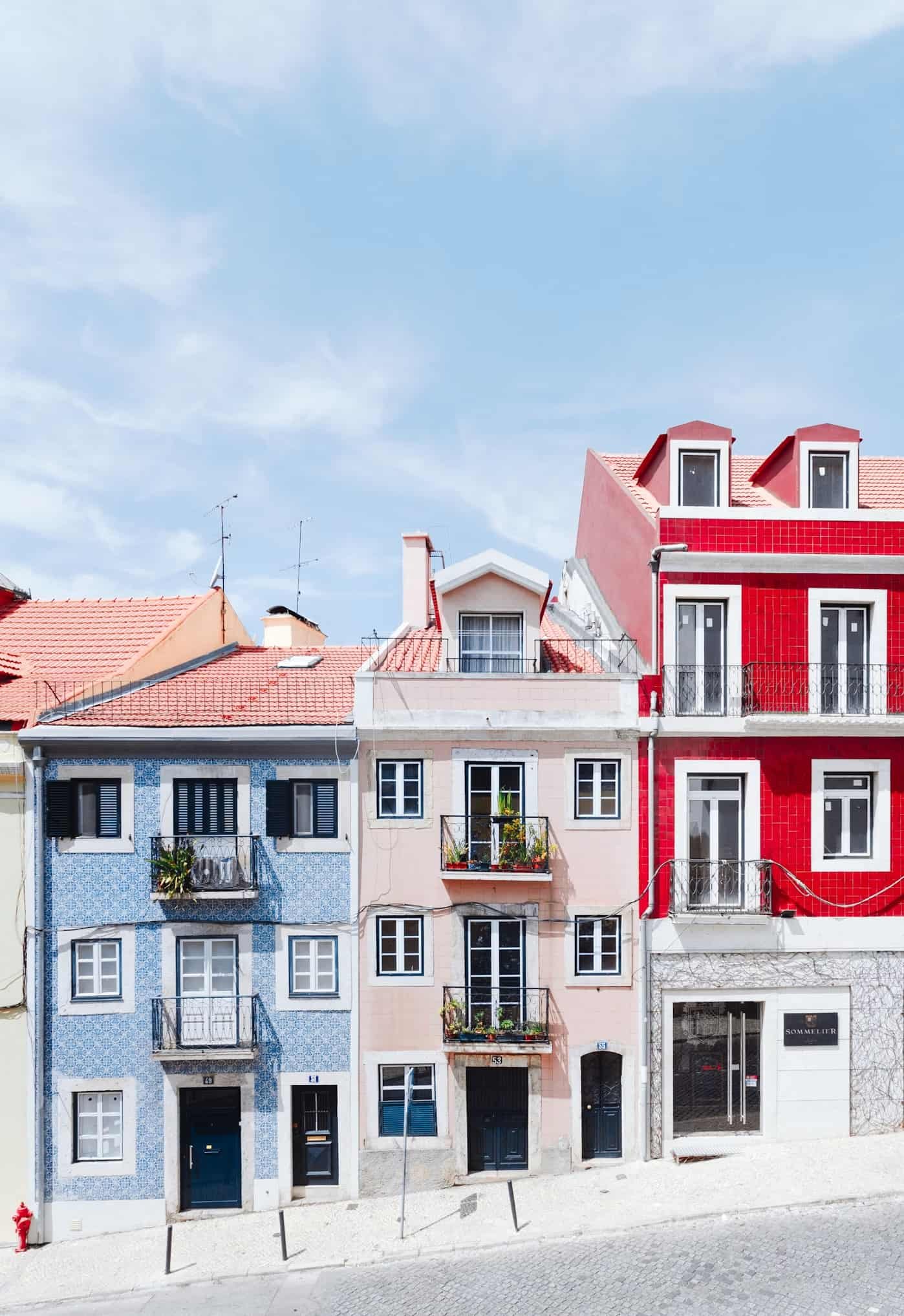
What are the pitfalls of buying property in Portugal?
Before, you purchase any property in Portugal, here are things you need to consider:
- Most houses in Portugal (even luxury homes) don’t have central heating
- Bureaucratic systems are remarkably slow here and they often handle things inefficiently. So making your purchase might take a bit longer than you realize.
- Look out for scams before making any purchase. That’s why you should work with an experienced real estate agent. In Portugal, those are called imobiliaria. Be sure that they are registered and licensed by the Portuguese Association of Real Estate Agents (Associacao de Mediadores Imobiliarios). You can check to see that the agent is registered through their website.
What is the average cost of property in Portugal?
The average cost of homes in Portugal depends on where you pick. Of course, popular regions like Lisbon, Cascais, and the Algarve have significantly higher costs in home purchases. Below you’ll find a table of the average price of homes per square meter across neighborhoods.
| District | City | Average Price per m² |
| Baixa and Chiado | Lisbon | $7,785 |
| Lapa and Santos | Lisbon | $5,937 |
| Campo de Ourique | Lisbon | $5,201 |
| Ribeira, Miragaia and Baixa | Porto | $4,541 |
| Alfama | Lisbon | $5,937 |
| Portimão | Algarve | $2,557 |
| Cascais and Estoril | Cascais | $4,718 |
| Carcavelos and Parede | Cascais | $3,803 |
What are the most popular places investors seek properties?
All regions in Portugal have in recent times, witnessed an influx of foreign interests. And even with the end of the real estate side of the Golden visa program, there’s still growing interest in real estate in Portugal. Among the most popular regions that investors focus on include:
- Algarve
- Lisbon
- Lagos
- Alentejo
- Cascais
- Vilamoura
Despite these popular regions, investors also love the Portuguese islands of Madeiras and the Azores. These areas have the advantage of stunning landscapes, mild climates, and picturesque archipelagos. These areas are also the destination for rural properties, with sea views. This means they are a great spot to purchase cheap property with decent chances of great returns.
What kinds of property can I buy in Portugal?
As a well-developed country, Portugal’s real estate is also pretty advanced. So you’ll find everything from studio apartments to five bedrooms, villas, and more. Here are the different terms to look out for when purchasing property in Portugal:
A Casa or Moradia is a typical detached home. Some such homes have surrounding amenities like a patio or backyard. This house will also have a wall around it with a front gate.
- A Casa Geminada is a semi-detached house
- Condos or Condominios are individual apartment units sharing common areas. This can be expensive as well.
- Quintas refers to farms or classic rustic houses. You’ll find this inland and some suburban regions.
- Terreno refers to land. It’s possible to purchase land and build your own home. But always verify the property with the city hall (Camara Municipal) to be sure the land is registered for habitation and not agricultural purposes.
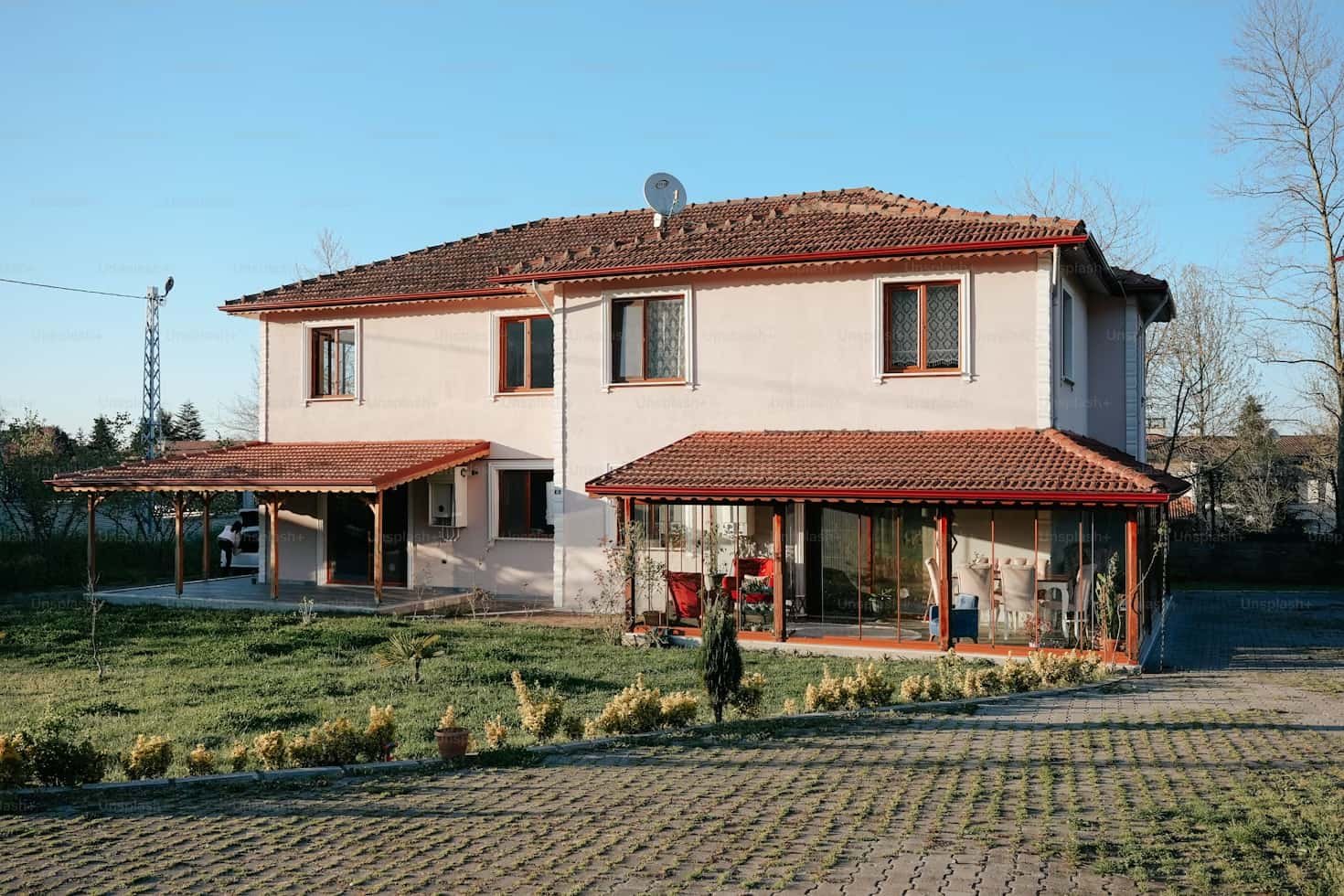
Where to find properties in Portugal for sale?
As said earlier, all regions in Portugal have great properties. But you should do your research by being specific about your needs. Here are some highlights to consider:
- Portuguese Islands: Here you’ll find small enchanting villages, spectacular beaches, and gorgeous temperatures. Specifically look at Porto Santo Island, The Azores, Sao Miguel Island, Madeira, Madeira Island and Terciera Island.
- Portuguese Coast: Investors flock to these regions because of their touristy attractions and they also make the perfect vacation hubs. You’ll find gorgeous homes facing the sea on the Portuguese coast. Specifically look at The Algarve, Lisbon Coast, Costa Verde, Costa Azul, and Costa de Prata.
- Portuguese regions: Generally, Portugal is divided into the most fascinating regions. Already we’ve talked about regions like the Azores and Madeira. But others you should also consider include Central Portugal, Alentejo, Algarve, Lisbon/Lisbon coast, and Inland North.
- Portuguese districts: Portuguese districts especially the popular offer a blend of luxury villas, modern apartments, and country houses. Some such districts include Faro, Santerem, Sao Miguel Island, Setubal, Vila Real, Viana do Castelo, Madeira, Porto, Braganca, Castelo Branco, Coimbra, Evora, Beja, Portalegre, Viseu, and Lisbon.
Do you need a Solicitor when buying property in Portugal?
Hiring a Solicitor or to the Portuguese, a Solicitador is a great idea. A Solicidator is a type of lawyer in Portugal that specializes in property contracts and processes. They are also cheaper than a general lawyer. They can especially help you with their immense knowledge of the laws and all that you would encounter during the process.
Beyond that, you might also need a solicitor to advise you on how to finance your property purchase. For instance, one of the common issues that would be considered is “Where does the money come from”.
So whether you’re an EU or Portuguese national or foreigner, your purchase process also depends on where your money is coming from. Of course, paying cash means there are no restraints. Beyond that, if you’ll be applying for a loan, a solicitor can also provide insights on what you must do.
How long can you stay in Portugal if you buy a property?
Before, now the Golden visa allowed you to stay in Portugal for the least number of days as long as you made a property investment. However, the real estate investment aspect of the Portugal Golden visa program has ended.
From 2023, available routes with the Portugal Golden visa program range from donation to arts, to venture capital/private equity fund, donation to research activities, or company creation.
That said, the Portugal Golden visa program remains the only program where you don’t have to reside in Portugal for up to six months in a year to maintain the validity of your residency permit.
How much tax do you pay for buying a property in Portugal?
There are a variety of fees you need to become aware of as a potential property owner in Portugal. First, you’ll have to pay some admin costs (0.2 – 1.2%) and legal fees (1 – 2%). Beyond that, Property owners in Portugal pay three types of taxes:
- Municipal Property Tax (IMI)
The IMI means Imposto Municipal Sobre Imovels and will be different in each municipality. This money is used to maintain public infrastructures in municipalities. The IMI rates usually range from 0.3% to 0.45%. To calculate this, you need to multiply the value of the tax asset by the IMI rate. For instance, if your property value is about €600,000 and you live in the municipality of Cascais with a rate of 0.34%. Multiplying both yields €2,040.
- Property Purchase Tax (IMT)
The IMT is also called the Imposto Municipal Sobre as Transmissoes Onerasas de Imovie. You’ll pay this tax as a one-time payment when buying the hose. This tax also depends on the value and type of property, alongside whether the property is a principal or secondary residence.
Furthermore, you must pay this tax before you purchase the house. So the IMT calculator is the value of the deed or net worth tax (the larger amount) multiplied by rate minus tax reduction. That said, you may not pay the IMP if you purchase the house in mainland Portugal and its price does not exceed €92,407. IMT also ranges from 2% to 8%. However, properties acquired by companies located in a blacklisted jurisdiction pay 10% for IMT.
- Tax on Stamps (IS)
The Imposto de Selo is a tax you pay on contracts, loans, documents, and more. This rate often ranges from 0.4% to 0.8% and depends on the property and its value.
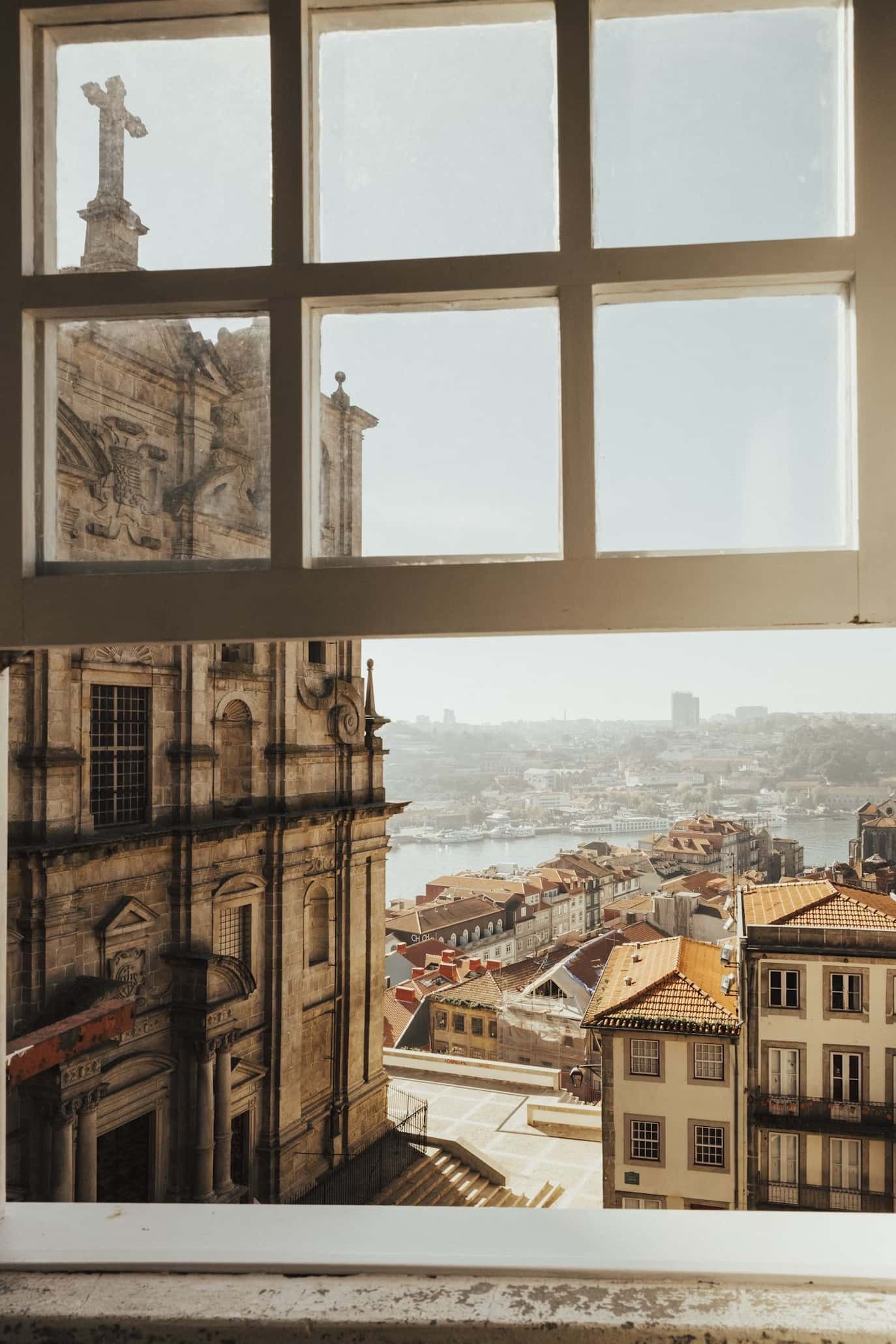
What’s the process of buying a house in Portugal?
Buying a house in Portugal is easy. As long as you have the right legal and financial advisors, the process can go as effortlessly as possible. Here’s what the process looks like most of the time:
- Research mortgages
Will you be getting a loan to pay for your property? Then you need to thoroughly research the different available mortgage packages and find the best fit for you.
- Consider your financing
Look at what your financing looks like and its origin. As expected, wherever your finances are coming from will also influence the fiscal aspects of your property purchase.
- Find the right house
Next, go in search of the ideal house that fits your budget. This might also require getting the right specialist to check contracts, survey the property, and so on.
- Make an offer
Now you need to make an offer and negotiate the price. You might also need to go to the bank and finalize the mortgage as well.
- Sign sale contract
Now you must sign the Contrato de Promessa de Compra e Venda (CPCV) with the notary.
- Deposit payment
Pay your deposit and agree on an end with the seller
- Pay Property transfer tax
Pay the IMT and the property transfer tax.
- Deed of purchase & sale
Sign the Escritura Publica de Compra e Venda & register the house in your name.
What documents do I need to purchase a property in Portugal?
To sign your sale contract, you must have a notary witness. You’ll also need your Portuguese tax number which you can get at the local tax office. Other documents you’ll need include:
- Photo ID
- Contrato-Promessa De Compra e Venda (CPCV)
- The Property’s energy certificate
- Imposto de Selo (payment of the stamp)
- Carderneta Predial (land register).
Is it hard to get a residence permit in Portugal?
Portugal is one of the European countries with less stringent access to visas and residence permits. All you need do is plan properly on the visa you wish to choose, and how it counts towards permanent residency/citizenship in Portugal.
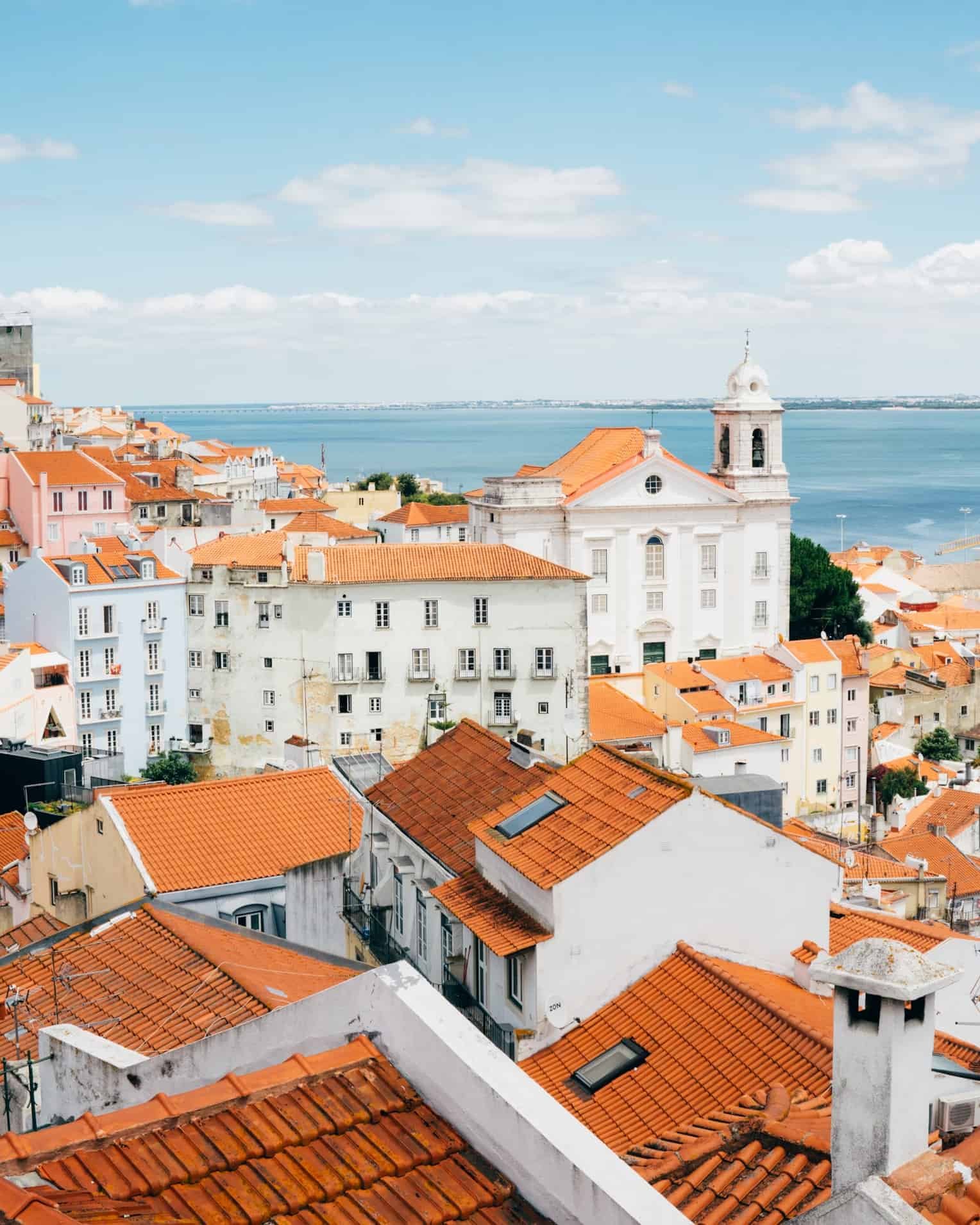
Are properties in Portugal cheap?
Properties in Portugal are not uniformly priced. You need to realize that different regions have varying prices. For instance, properties around the center of Lisbon can cost twice as much as properties in the outskirts. That said, the cheapest properties in Portugal are situated in rural areas. For instance, the city of Portalegre in Alentejo is one of the cheapest places to purchase a house. There you can get a house in the city’s center for 635 EUR/m2 However, the more expensive areas are situated in places like Cascais, Porto, and: Lisbon.
How long can you stay in Portugal as a non-resident?
The length of time you can stay in Portugal as a non-resident depends on the type of visa you have. For instance, people on the Schengen visa can stay up to 90 days in 180 days. People on other longer visas might stay anywhere from 6 months up to 1 year, depending on the validity of their visa and residence permit. Of course, some visas also allow for extensions as well.
Do I need a bank account to buy a house in Portugal?
Getting a bank account in Portugal is important. However, what you do need before you can purchase real estate in Portugal is the Portuguese Tax Number (NIF) which you need to obtain at the bank or local tax office.
How much deposit do I need for a house in Portugal?
Often the deposit you’ll need to purchase a house is a minimum of 20 percent deposit on a house. However, also note that Portuguese mortgages often vary from 60 to 80% of the price or valuation price depending on the lender and the loans are available at a variable rate.



